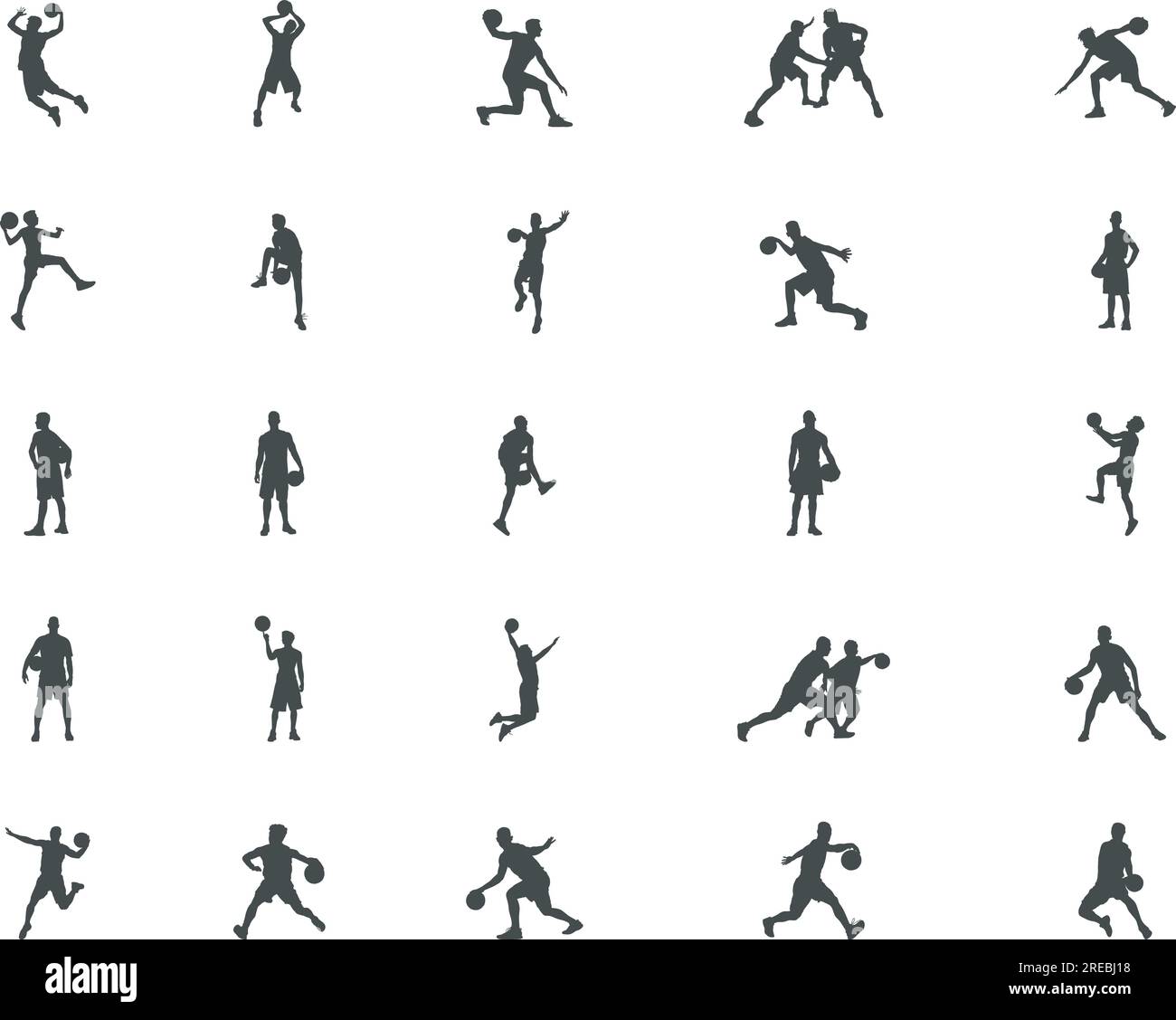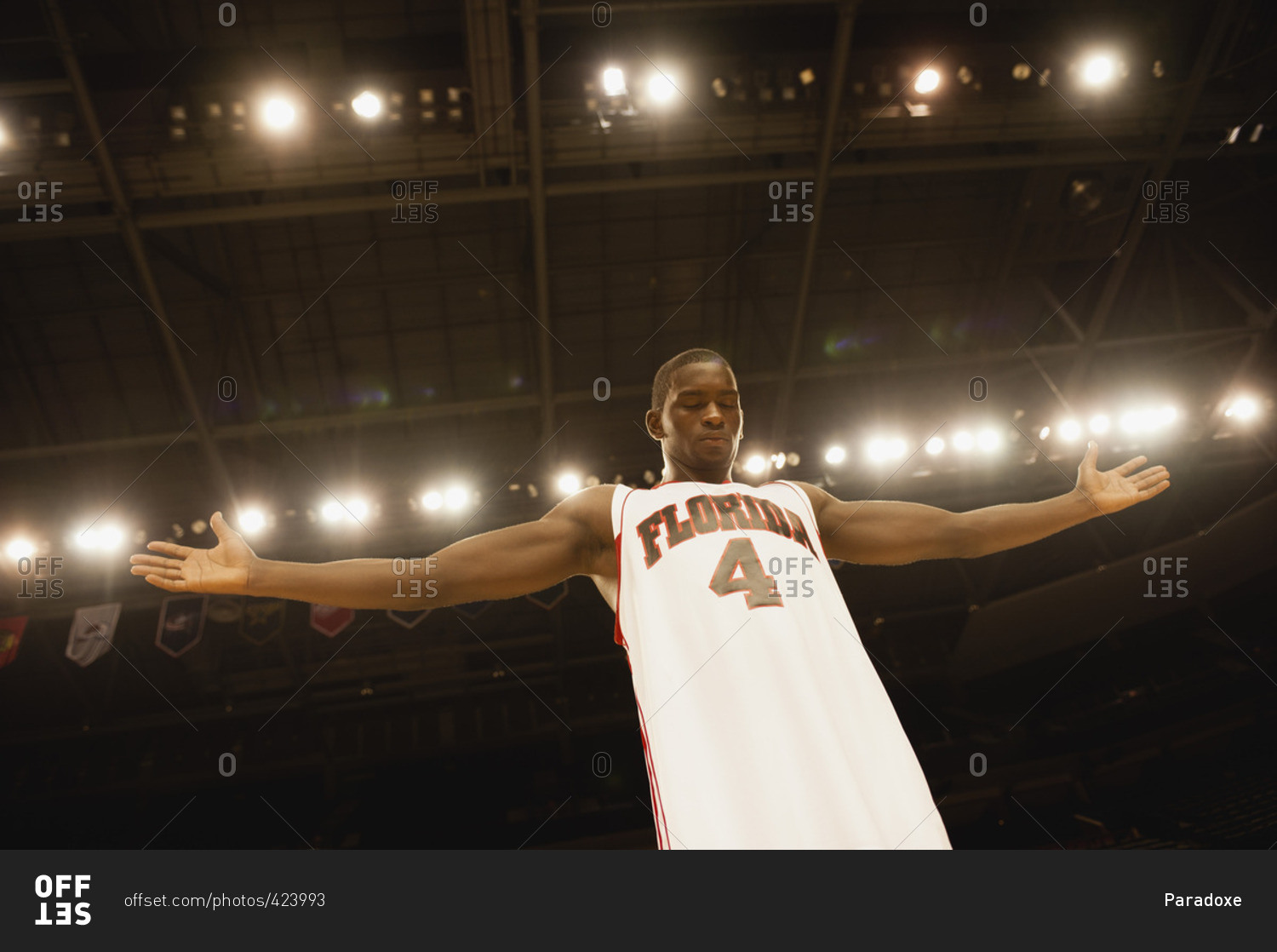When you think about basketball, one of the most striking physical traits that sets players apart is their long arms. It's not just about height; it's about reach, agility, and the ability to outmaneuver opponents. Players with long arms have an edge that goes beyond just being tall. They can block shots, steal the ball, and create space that shorter players simply can't match. But what makes long arms so crucial in the world of basketball?
Imagine this: a player towering over the competition, arms stretched out like a human net, ready to intercept any pass or block any shot. That's the power of long arms in basketball. It's not just about looking intimidating; it's about creating opportunities and controlling the game. In this article, we'll dive deep into why long arms are such a game-changer and how they influence a player's performance.
Long arms in basketball aren't just about genetics; they're also about skill and technique. Players with long arms can dominate both offensively and defensively, but it takes more than just having the physical advantage. It's about how they use their reach to their benefit. So, let's explore the science, the strategy, and the impact of long arms in the sport we all love.
- Is Mcdonalds Bringing Back The Mcrib Lets Dive In And Find Out
- Aaron Pierre Girlfriend The Ultimate Guide To His Love Life And Relationships
Why Long Arms Matter in Basketball
Let's get one thing straight: long arms matter. A lot. In basketball, having a longer wingspan means you can cover more ground, disrupt plays, and create mismatches that can tilt the game in your favor. But why exactly is this such a big deal?
First off, players with long arms have a natural advantage when it comes to defense. They can contest shots more effectively, block passes, and disrupt dribbles. Imagine trying to shoot over someone whose arms feel like they're reaching across the court. It's not easy, right? That's why defenders with long arms are often considered nightmares for opposing offenses.
The Science Behind Arm Length
Arm length, or wingspan, is measured from fingertip to fingertip when a player's arms are fully extended. Studies show that players with a wingspan longer than their height have a significant edge. This extra reach allows them to cover more ground and make plays that shorter players simply can't. According to research from ESPN, the average NBA player's wingspan is about 6 feet 10 inches, which is significantly longer than their actual height.
- Katy Dixon The Rising Star Whos Turning Heads In The Entertainment World
- Olivia Dunham Fringe Actress The Fascinating Journey Of A Scifi Icon
But here's the kicker: it's not just about being tall. Some players are shorter but have incredibly long arms, giving them an advantage over taller opponents. For example, Matisse Thybulle, a 6'5" guard, has a wingspan of 7'1", making him a defensive juggernaut despite his relatively modest height.
How Long Arms Impact Offense
Now, let's talk about the other side of the ball. Long arms aren't just for defense; they can also be a huge asset on offense. Players with long arms can shoot over defenders, grab rebounds more easily, and create space for themselves and their teammates. It's like having an extra weapon in your arsenal.
For instance, Giannis Antetokounmpo, aka the "Greek Freak," has a wingspan of 7'3" and uses it to his advantage in countless ways. He can finish at the rim with ease, grab rebounds from improbable angles, and even pass the ball with precision. His long arms make him a triple threat, capable of scoring, rebounding, and distributing all in one play.
Shooting Over Defenders
One of the most obvious benefits of long arms is the ability to shoot over defenders. Players with a longer wingspan can elevate higher and extend further, making it nearly impossible for opponents to contest their shots. This is especially important in today's NBA, where perimeter shooting is more valuable than ever.
Take Stephen Curry, for example. While he's not the tallest player, his wingspan of 6'6" allows him to get his shot off quickly and cleanly, even when closely guarded. Combine that with his incredible shooting range, and you've got one of the deadliest scorers in the league.
The Role of Long Arms in Defense
Defense is where long arms truly shine. A player with a longer wingspan can disrupt plays, contest shots, and create turnovers at an elite level. It's like having an invisible force field around you, making it difficult for opponents to navigate the court.
One of the best examples of this is Rudy Gobert, the three-time Defensive Player of the Year. Standing at 7'1" with a wingspan of 7'9", Gobert is a defensive anchor for any team he plays for. His ability to block shots, grab rebounds, and protect the rim is unmatched, and it all starts with his long arms.
Block Party: Blocking Shots with Long Arms
There's nothing quite like a well-timed block to shift the momentum of a game. Players with long arms are masters of this art, using their reach to swat away shots and demoralize opponents. Think about players like Dwight Howard or Anthony Davis, who have made a living off their ability to reject attempts at the rim.
But it's not just about size; it's about timing and positioning. Long arms give players more room for error, allowing them to make plays they might otherwise miss. It's a combination of physical gifts and basketball IQ that separates the great defenders from the rest.
The Psychology of Long Arms
Long arms don't just affect the physical side of the game; they also have a psychological impact. When you're facing a player with long arms, it can be intimidating. You know that every shot you take, every pass you make, and every dribble you attempt is at risk of being disrupted. This mental pressure can lead to mistakes and poor decision-making.
Players with long arms often use this to their advantage, creating a mental edge over their opponents. They know they can intimidate and frustrate players simply by being present on the court. It's a subtle but powerful aspect of the game that shouldn't be overlooked.
Intimidation Factor
Let's face it: long arms can be scary. Imagine trying to drive to the basket against someone whose arms feel like they're everywhere. It's enough to make even the most confident players think twice. This intimidation factor can lead to hesitation, which is often the difference between a made shot and a blocked attempt.
Players like Kawhi Leonard have mastered the art of intimidation with their long arms. Standing at 6'7" with a wingspan of 7'3", Leonard has the ability to lock down opponents and make them uncomfortable. His defensive presence is felt throughout the game, and it all starts with his physical attributes.
Long Arms in History: The Greats Who Made It Work
Throughout the history of basketball, there have been numerous players who have used their long arms to dominate the game. From Wilt Chamberlain to LeBron James, these players have set the standard for what it means to be a great basketball player with a physical advantage.
One of the most iconic players with long arms is Wilt Chamberlain. Standing at 7'1" with a wingspan of 7'5", Chamberlain was a force of nature on both ends of the court. He used his size and reach to dominate opponents, scoring points and grabbing rebounds with ease. His legacy as one of the greatest players of all time is a testament to the power of long arms in basketball.
Modern-Day Legends
Fast forward to today, and you'll find that long arms are still a key factor in success. Players like LeBron James, Kevin Durant, and Kawhi Leonard have all used their physical gifts to become some of the best players in the league. LeBron, in particular, has a wingspan of 7'1", which allows him to play multiple positions and dominate in a variety of ways.
Kevin Durant, standing at 6'10" with a wingspan of 7'5", is another player who has made the most of his long arms. His ability to shoot over defenders and block shots has made him one of the most versatile players in the league. It's a combination of size, skill, and smarts that sets him apart.
Training and Technique for Players with Long Arms
Having long arms is a gift, but it's not enough on its own. Players need to train and develop techniques that allow them to maximize their physical advantages. This includes working on their footwork, coordination, and strength to ensure they can use their arms effectively on the court.
Coaches play a crucial role in helping players with long arms develop their skills. They focus on improving their agility, balance, and awareness, so they can make the most of their reach. It's about turning a physical advantage into a tactical one.
Strength and Conditioning
Strength and conditioning are essential for players with long arms. They need to build muscle and improve their endurance to ensure they can maintain their performance throughout the game. This includes exercises that target their core, legs, and upper body, as well as drills that improve their coordination and balance.
Players like Giannis Antetokounmpo have shown how important strength training is for maximizing long arms. His ability to combine power with agility has made him one of the most dominant players in the league. It's a testament to the importance of hard work and dedication in achieving success.
Conclusion: Embracing the Power of Long Arms
Long arms are a game-changer in basketball, providing players with a physical advantage that can influence both offense and defense. From blocking shots to shooting over defenders, players with long arms have the ability to dominate the game in countless ways. But it's not just about genetics; it's about skill, technique, and hard work.
As we've seen throughout history and in today's NBA, players with long arms have set the standard for greatness. They've used their physical gifts to become some of the best players in the world, proving that long arms are more than just a physical trait—they're a key to success.
So, the next time you watch a basketball game, take a moment to appreciate the players with long arms. They're not just tall; they're talented, skilled, and determined. And that's what makes them so special.
Don't forget to share this article with your friends and leave a comment below! Let's keep the conversation going and explore more about the fascinating world of basketball.
Table of Contents
- Why Long Arms Matter in Basketball
- The Science Behind Arm Length
- How Long Arms Impact Offense
- Shooting Over Defenders
- The Role of Long Arms in Defense
- Block Party: Blocking Shots with Long Arms
- The Psychology of Long Arms
- Intimidation Factor
- Long Arms in History: The Greats Who Made It Work
- Modern-Day Legends
- Training and Technique for Players with Long Arms
- Strength and Conditioning
- How Tall Is Bunnie Xo Unveiling The Iconic Creators Height And More
- Ribert Plant The Voice That Shook The Music World


